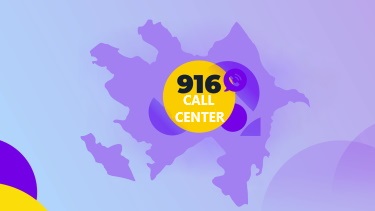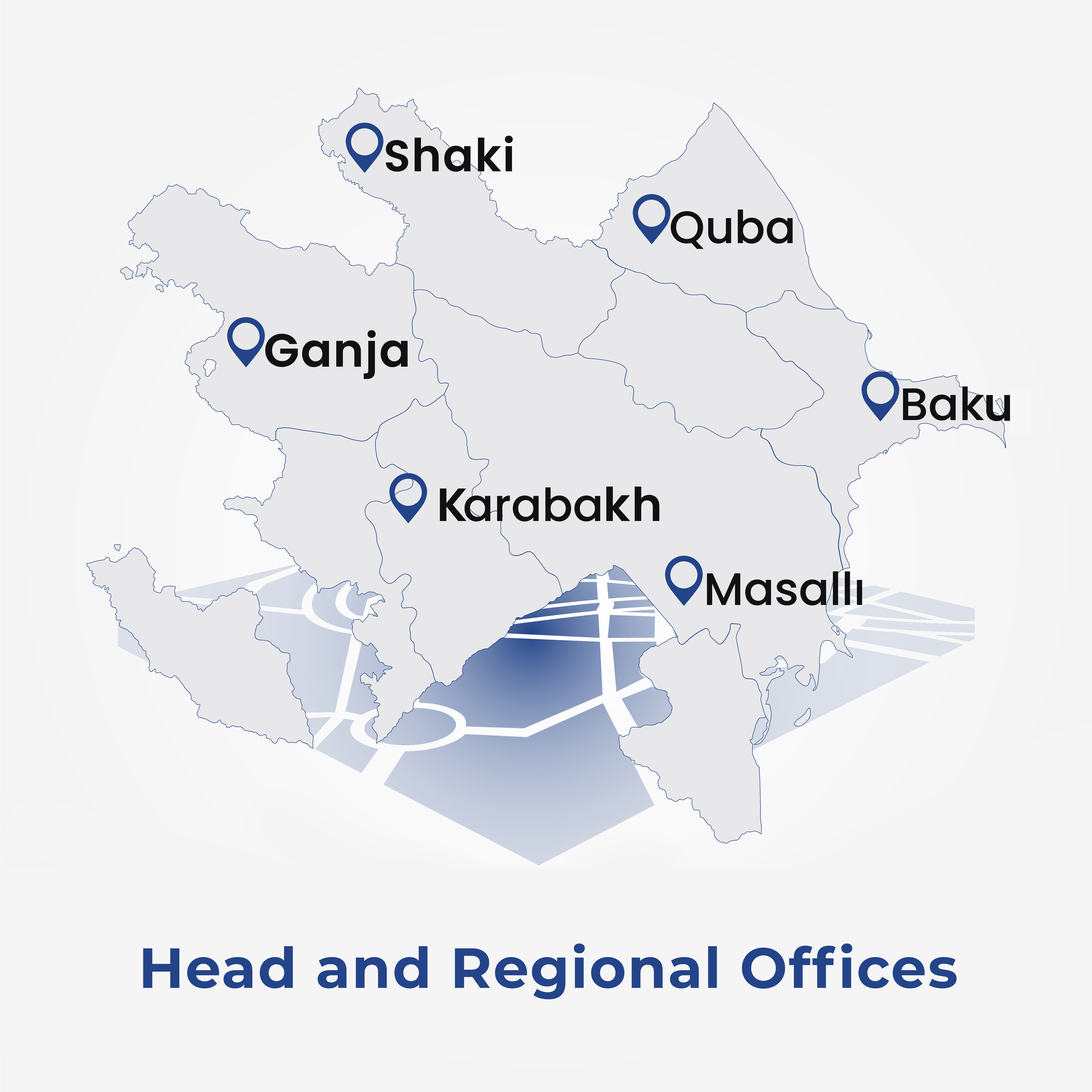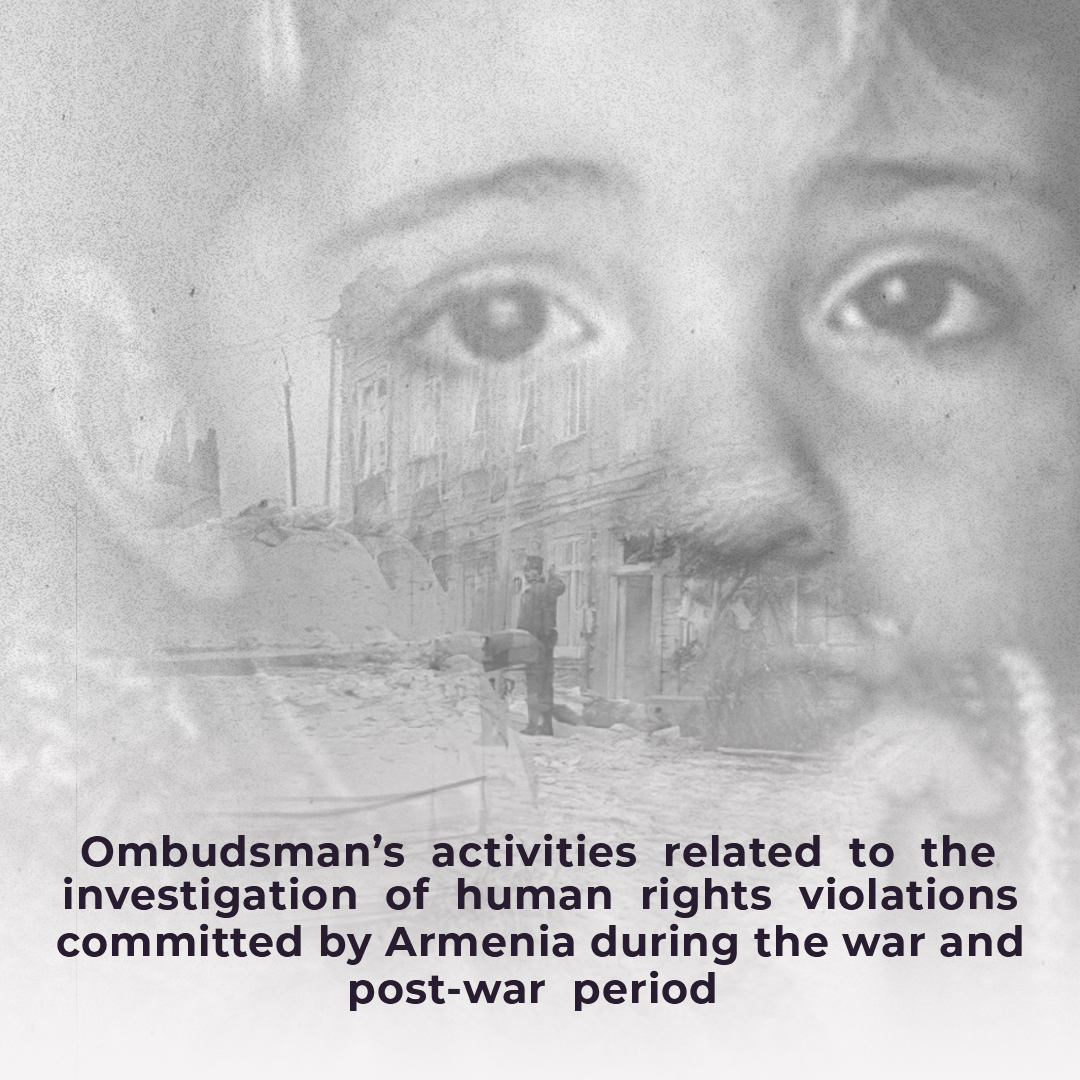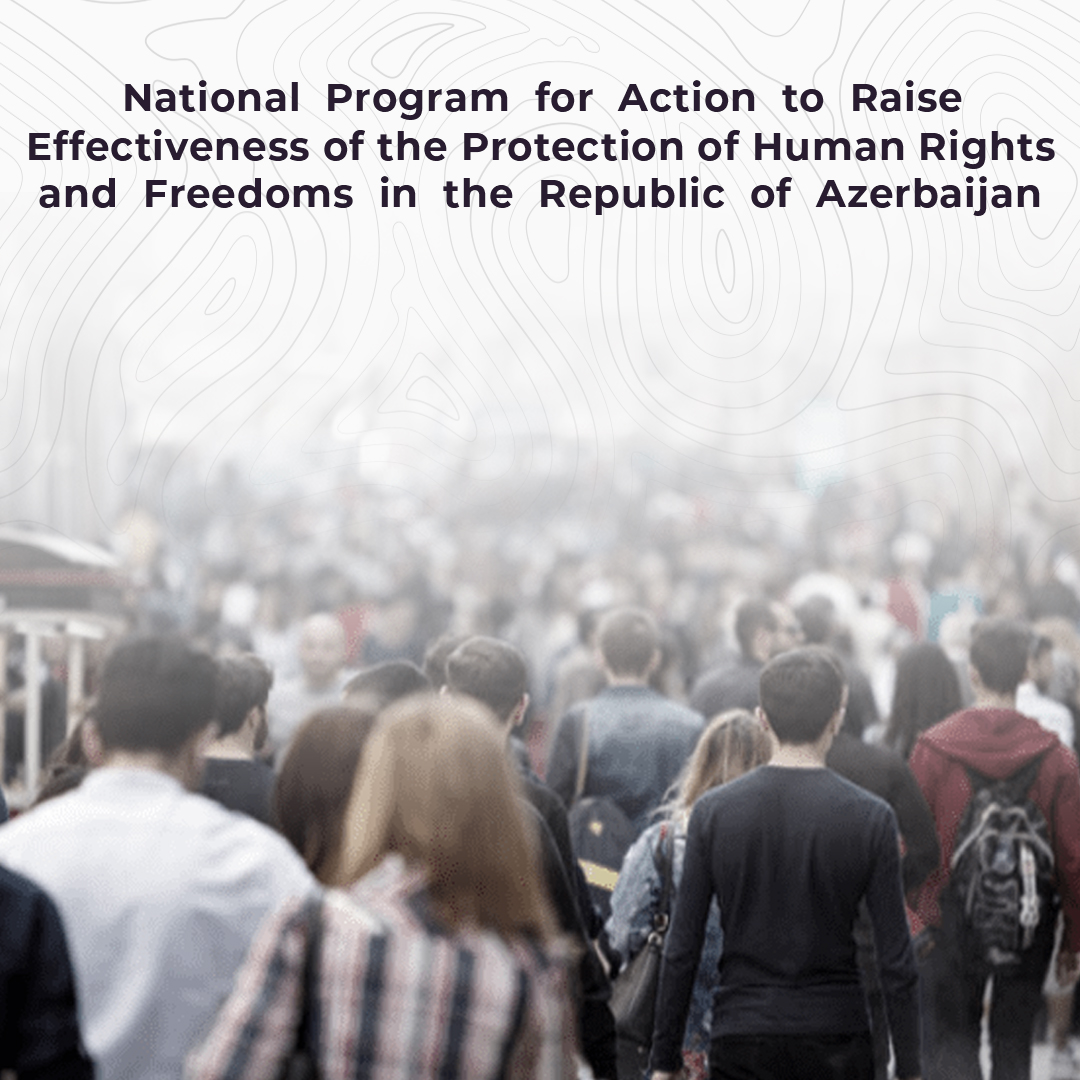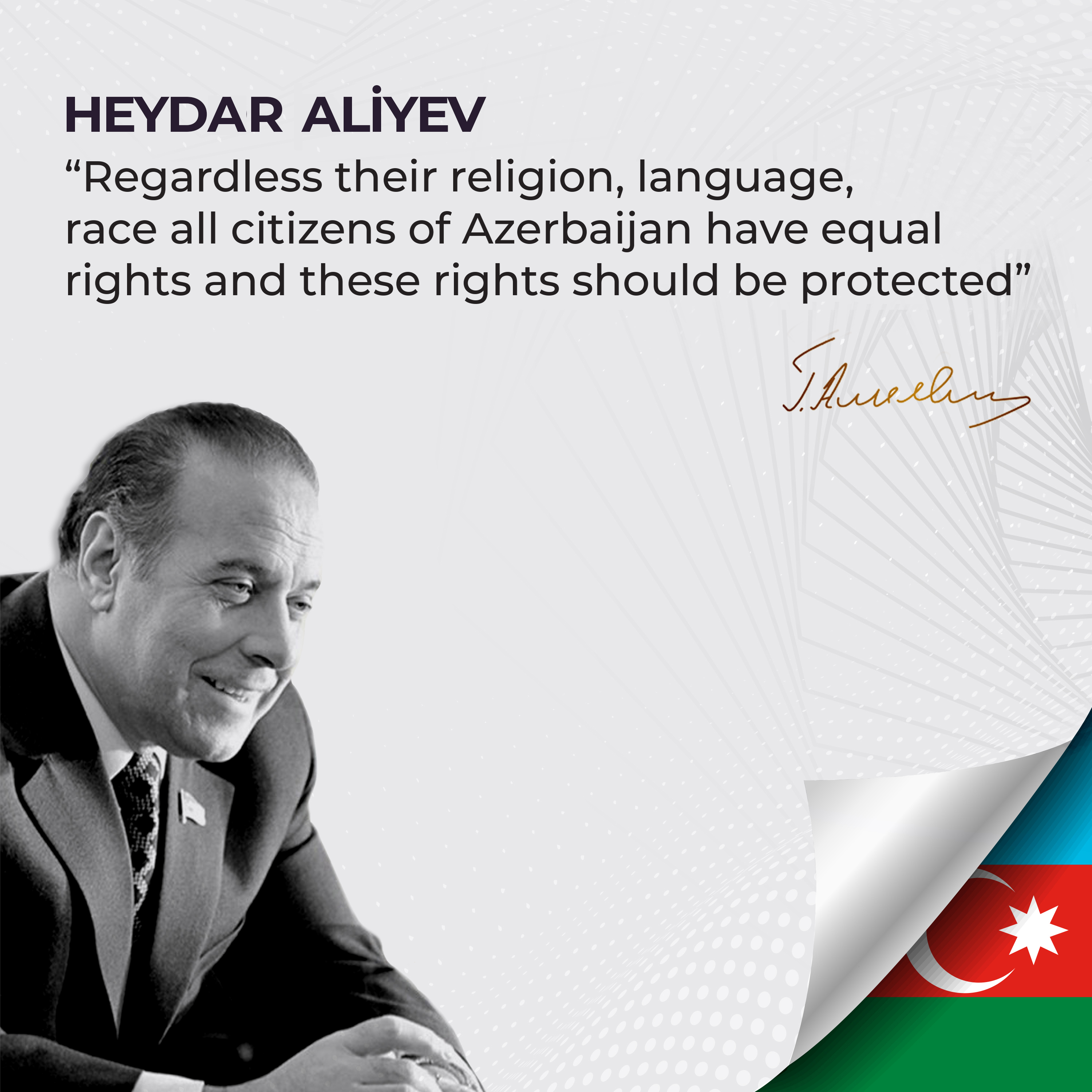
- Home page
- Commissioner
-
Activity Directions
- Mental Health and Human Rights
- Protection of the Rights of Population Groups
- Protection of the Right to Information
- Independent Monitoring Mechanism
- Legal Education
-
International Cooperation
- Cooperation with international organizations
- Cooperation with non-governmental organizations
- Study visits
- Projects
- Statements addressed to the international organizations
- “Ad hoc” reports
- Parallel and alternative reports submitted to the UN Treaty Bodies
- Oral and written statements submitted to the UN Human Rights Council
- Memorandums of cooperation
- Baku Declarations of Ombudspersons
- International Baku Forum
- Scientific Analytical Work
- Cooperation with Public and Civil Society Organizations
- Business and Human Rights
- National Preventive Mechanism Against Torture
- Protection of Human Rights
- Documents
- Media
- Live
- Contact
- Home page
- Commissioner
-
Activity Directions
- Mental Health and Human Rights
- Protection of the Rights of Population Groups
- Protection of the Right to Information
- Independent Monitoring Mechanism
- Legal Education
-
International Cooperation
- Cooperation with international organizations
- Cooperation with non-governmental organizations
- Study visits
- Projects
- Statements addressed to the international organizations
- “Ad hoc” reports
- Parallel and alternative reports submitted to the UN Treaty Bodies
- Oral and written statements submitted to the UN Human Rights Council
- Memorandums of cooperation
- Baku Declarations of Ombudspersons
- International Baku Forum
- Scientific Analytical Work
- Cooperation with Public and Civil Society Organizations
- Business and Human Rights
- National Preventive Mechanism Against Torture
- Protection of Human Rights
- Documents
- Media
- Live
- Contact
Call center
916
STATEMENT of the Commissioner for Human Rights (Ombudsman) of the Republic of Azerbaijan regarding the 28th anniversary of Khojaly Genocide
On the night from February 25 to 26, 1992, as a continuation of Armenia’s long-lasting aggression and ethnic cleansing policy against Azerbaijan, the Armenian armed forces occupied Khojaly with the assistance of the 366th motorized regiment of the former USSR and committed an act of genocide against civil population. 28 years have passed since the Khojaly tragedy.
During this genocide, 613 people, including 106 women, 63 children and 70 elderly, were murdered with special cruelty and 487 people get various injuries because of their ethnic belonging – being an Azerbaijani. At the same time, eight families were completely annihilated, 130 children lost one of their parents, and 25 children lost both parents, 1275 were subjected to tortures being captured and taken hostage, the fate of 150 of them, including 68 women and 26 children, is still unknown.
In addition, more than 170 million USD was inflicted on the Azerbaijani state and its citizens in connection with the occupation of Khojaly.
In February 1994, at the initiative of the National Leader Heydar Aliyev, Milli Mejlis of the Republic of Azerbaijan gave a political-legal assessment of Khojaly Genocide; February 26 is announced as the “Day of Khojaly Genocide”.
According to the UN General Assembly Resolution 96 (I) of December 11, 1946 and Resolution 260 (III) of December 9, 1948, “On the Prevention and Punishment of Crime of Genocide” this mass killing of human beings committed by the Armenian aggressors in Khojaly is a genocide.
Genocide in Khojaly is not the first systematic crime committed against Azerbaijanis, but is the gravest crime of genocide committed by Armenia against the peaceful Azerbaijani population during the occupation war against Azerbaijan. Previously, alongside with the occupation of Baganis Ayrim village of Gazakh district of Azerbaijan bordering Armenia, Imarat Gharvand, Tugh, Selaketin, Akhullu, Khojavand, Jamilli, Nebiler, Mesheli, Hasanabad, Karkijahan, Gaybali, Malibeyli, Upper and Lower Gushchular villages of Nagorno-Karabakh where Azerbaijanis lived, the civil Azerbaijanis were killed in a deliberate way with special brutality. Besides, more than 80 civilians in Garadagly village and 67 civilians in Agdaban village, including children, women and the elderly, were tortured and brutally killed, dozens of people were taken hostage, became missing, and villages burned and exterminated.
The war, crimes against humanity and Khojaly Genocide committed on the background of military aggression against Azerbaijan by Armenia are serious violation of human rights and international humanitarian law, especially of the 1949 Geneva Conventions, the Convention on the Prevention and Punishment of the Crime of Genocide, International Covenant on Civil and Political Rights, International Covenant on Economic, Social and Cultural Rights, the Convention against Torture and Other Cruel, Inhuman or Degrading Treatment or Punishment, International Convention on the Elimination of All Forms of Racial Discrimination, the Convention on the Rights of the Child and the Convention for the Protection of Human Rights and Fundamental Freedoms.
The occupied Nagorno-Karabakh and adjacent seven districts are once again proved to be the integral part of the Republic of Azerbaijan under the international law, as well as UN Security Council Resolutions 822, 853, 874, 884 from 1993, UN General Assembly Resolution on “Situation on the occupied territories of Azerbaijan” dated on 14 March, 2008, Resolution 1416 from 2005 and Recommendation 1690 of the Parliamentary Assembly of the Council of Europe, as well as European Parliament’s Resolution on Nagorno-Karabakh from October 23, 2013, the European Parliament Resolution of December 12, 2018.
President of the Republic of Azerbaijan, Ilham Aliyev has repeatedly declared his commitment to the peaceful settlement of the Nagorno-Karabakh conflict within the frames territorial integrity of our country, as well as that there was not given just political and legal assessment of crimes against our people.
The international awareness campaign “Justice for Khojaly”, initiated by the Vice-President of the Heydar Aliyev Foundation, Leyla Aliyeva, is also an important contribution to the systematic work on the global recognition of Khojaly Genocide.
The relevant documents of the parliaments of Mexico, Pakistan, the Czech Republic, Peru, Colombia, Panama, Honduras, Sudan, Guatemala and Djibouti have confirmed that mass killing committed in Khojaly was an act of genocide. Parliaments of Romania, Bosnia and Herzegovina, Serbia, Jordan, Slovenia, Scotland and Paraguay, as well as the executive and legislative bodies of 22 states of the United States have strongly condemned the Khojaly tragedy recognizing it as a massacre, the Organization of Islamic Cooperation recognized Armenia as an aggressor and the Khojaly tragedy as a genocide.
Committing of acts of crime during Khojaly tragedy deliberately with the intent to completely or partially annihilate people for their national belonging once again proves their being an act of genocide under international and domestic law.
According to the UN Convention on the Prevention and Punishment of the Crime of Genocide, perpetrators of genocide must be punished in accordance with the law.
In order to achieve the principles announced 75 years ago during the adoption of the UN Charter and the Sustainable Development Goals, which aim at developing the world by 2030, the provisions of the conventions adopted by this international influential organization, as well as the resolutions of the Security Council must be enforced unconditionally, the territorial integrity of Azerbaijan should be restored, more than one million refugees and internally displaced persons should return to their homeland, captives and hostages should be released, and the justice should be provided to Khojaly.
Sabina Aliyeva
The Commissioner for Human Rights
(Ombudsman) of the Republic of Azerbaijan
February 19, 2020
This Statement is addressed to the UN Secretary-General, UN Security Council, UN Office of High Commissioner for Human Rights, UN Office of High Commissioner for Refugees, UN Human Rights Council, the United Nations Children’s Fund, the United Nations Educational, Scientific and Cultural Organization, European Union, Council of Europe, Organization for Security and Co-operation in Europe, International and European Ombudsman Institutes, Asian Ombudsman Association, Organization of Islamic Cooperation and the Ombudsman Association of its member states, Independent Permanent Human Rights Commission of the Organization of Islamic Cooperation, European Network of Ombudspersons for Children, International Peace Bureau, different ombudsmen and national human rights institutions, embassies of the Republic of Azerbaijan in foreign countries and the foreign embassies in Azerbaijan, as well as to the Azerbaijani Diasporas.
- National preventive mechanism against torture
- Protection of the rights of population groups
- Protection of the rights of refugees, IDPs and migrants
- Protection of the rights of detainees and prisoners
- Protection of the rights of military servants
- Protection of women's rights and provision of gender equality
- Protection of child rights
- General
- Legal awareness
- Protection of the rights of older people
- Protection of the rights of persons with disabilities
- Cooperation with public and civil society
- National preventive mechanism against torture
- International cooperation
- Non-Governmental Organizations
- Public hearings
- Mass media
- Business and Human Rights
- Protection of the rights of martyrs' families and war veterans
- Protection of the rights of migrants
- Prevention of discrimination and ensuring equality
- Right to information
- Mental health
- .
-

- The Ombudsman participated in the International Conference on “Artificial Intelligence and Human Rights: Opportunities, Risks and Visions for a Better Future” in Qatar.
-

- The Ombudsman sent letter to UN High Commissioner for Refugees regarding protection of rights of persons deported from Armenia.
-

- A representative of the Ombudsman Office took part in an event organized by the Ministry of Energy.
-

- The Ombudsman’s representatives participated in the Pardon Decree Enforcement Ceremony.
-

- A series of legal awareness events were organized by the Ombudsman's Regional Centers.
-

